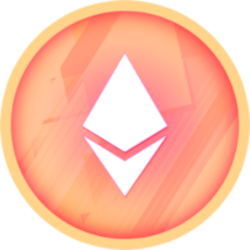Terra’s re-pegging is in focus as the community votes to stop minting.
The minting of TerraClassicUSD (USTC) will be terminated following an important decision ended last week. A proposal submitted on September 14 aimed to stop all minting and reminting of USTC and facilitate the re-peg through the burning of the stablecoin supply. The proposal passed on September 21 with 59.42% of the vote.
With this new development, the community expects that burning tokens could eventually restore USTC’s peg to the US dollar. As described, “this proposal opens the door for institutions like Binance to start burning USTC knowing that the minting and reminting is over.”
TerraUSD is Back in Action?
TerraUSD is an algorithmic stablecoin linked to the notorious blockchain ecosystem Terra Classic, in addition to its sister token LUNA. The stablecoin aimed to maintain a value of $1 for each USTC (formerly UST).
However, in May 2022, the value of LUNA collapsed from over $120 to zero, wiping out over $50 billion in market capitalization of UST/LUNA and causing over $400 billion in losses for the broader cryptocurrency markets.
The Terra saga was a major setback for the cryptocurrency industry. It caused a crisis of trust across the broad communities and raised serious questions about the viability of algorithmic stablecoins. The event had a cascading effect on other crypto projects, with many crypto companies declaring insolvency within months.
On the other hand, the Terra collapse has accelerated global regulatory scrutiny. Earlier this year, the European Union (EU) passed the Markets in Crypto Assets (MiCA) Regulations.
Stablecoin issuers and Crypto Asset Service Providers (CASPs) must comply with these new rules to operate in the region.
Hong Kong was also among the first to step up to regulate stablecoins. The country plans to establish a regulatory framework for stablecoins by the end of 2024. The country’s regulators are reportedly collecting public comments on stablecoins.
Terra Classic and FTX in Revival Efforts
The collapse of the FTX exchange, under the management of Sam Bankman-Fried (SBF), was one of the most scandalous events in crypto history, in addition to the Terra/LUNA crash. According to recent reports, both entities are finding ways to rejoin the crypto market.
FTX, now under new leadership, is engaged in discussions with potential investors as they prepare to redefine the global exchange’s future, according to Wall Street Journals. CEO John J. Ray III also confirmed this strategic plan.
Since insolvency, FTX’s new management team has been working to recover assets to repay creditors and customers. The revival plan aims to speed up the repayment process. Plus, it may help the company deal with extremely high costs for consulting, operating, and pursuing legal proceedings.
However, FTX’s former CEO, Sam Bankman-Fried (SBF), has voiced opposition to the restructuring plan.
The Terra community, on the other hand, is divided regarding the project’s revival. In May 2022, Terraform Labs announced the launch of Terra 2.0, a fork blockchain from Terra Classic with its own native token, LUNA.
Do Kwon, co-founder of Terraform Labs, who is currently in custody in Montenegro, revealed in February this year that he was developing new products for Terra 2.0.
Terra 2.0 (LUNA) is committed to resolving congestion, which was one of the reasons behind the withdrawal and deposit problems with Luna Classic (LUNC), TerraClassicUSD (USTC), Anchor Protocol (ANC) and Mirror Protocol (MIR).
However, some Terra Classic investors have chosen to support the original blockchain.
While the confidence in Terra Classic and FTX has significantly decreased, it’s undeniable that these two initiatives were formerly impactful forces in the crypto sector, and many loyal users have continued to support the projects. But only time will tell if these initiatives can overcome their past setbacks and chart a new course for their future.














